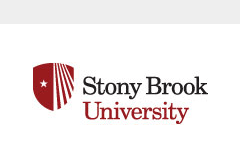Document Type
Full Paper
Location
Charles B. Wang Center
Event Website
http://www.centerfornewsliteracy.org/globalconference2017/
Start Date
8-14-2017 1:00 PM
End Date
8-14-2017 2:30 PM
Description
The University of Hong Kong’s “Cyber News Verification Lab” was founded in June 2016, and is arguably the first of its kind in Asia, as a focused, experiential project developing undergraduates’ online verification skills. It has been hailed as “Ahead of the curve” in online and social media fact checking education by the industry’s groundbreaking verification journalists. In September 2016, Meedan, (a founding partner of First Draft News including Google News Labs) joined the experiment by providing access and technical support to their open source verification platform called ‘Check’. The project led to a significant increase in the quality of verification techniques and critical thinking actions by students. This paper discusses the curriculum design and initial findings from the Cyber News Verification Lab implemented into News Literacy courses at HKU in Semester 2, 2016-17. The paper also outlines current developments towards a news literacy verification rating scale – that arose from measures created by the instructor to assess student outcomes from the experiential project.
Included in
The Future of News Literacy in a Connected World
Charles B. Wang Center
The University of Hong Kong’s “Cyber News Verification Lab” was founded in June 2016, and is arguably the first of its kind in Asia, as a focused, experiential project developing undergraduates’ online verification skills. It has been hailed as “Ahead of the curve” in online and social media fact checking education by the industry’s groundbreaking verification journalists. In September 2016, Meedan, (a founding partner of First Draft News including Google News Labs) joined the experiment by providing access and technical support to their open source verification platform called ‘Check’. The project led to a significant increase in the quality of verification techniques and critical thinking actions by students. This paper discusses the curriculum design and initial findings from the Cyber News Verification Lab implemented into News Literacy courses at HKU in Semester 2, 2016-17. The paper also outlines current developments towards a news literacy verification rating scale – that arose from measures created by the instructor to assess student outcomes from the experiential project.
https://commons.library.stonybrook.edu/cnlglobalconference/cnl2017/one/4

